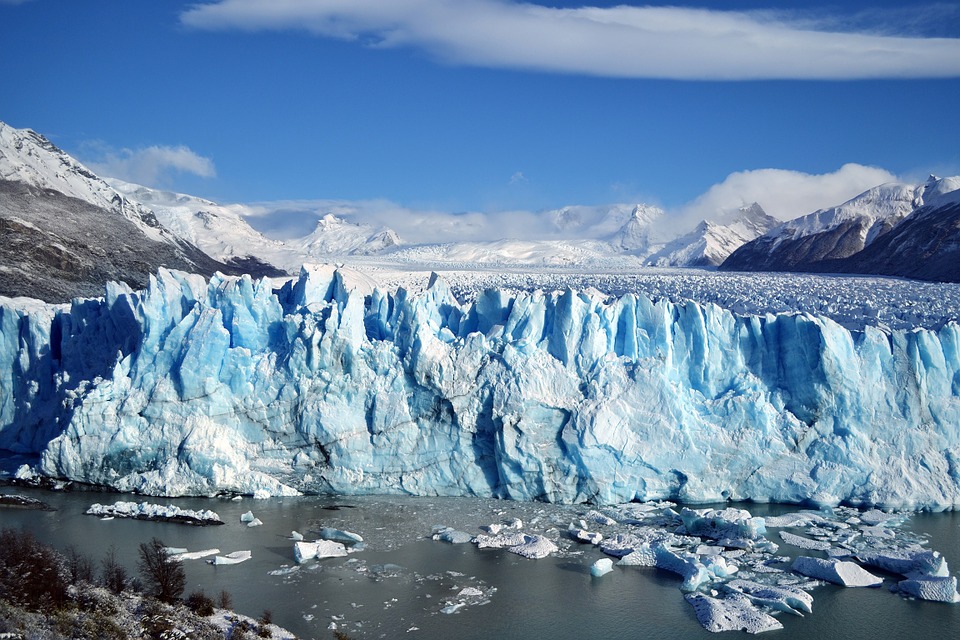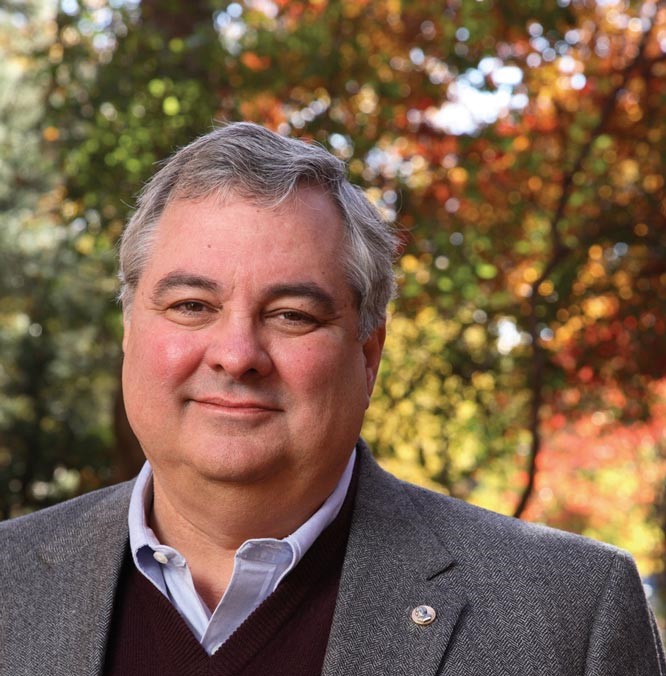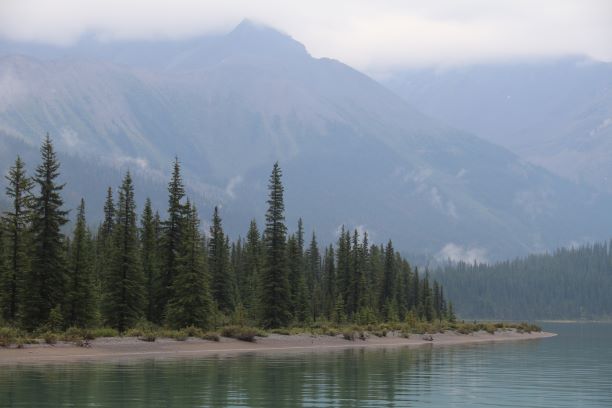Foundations of the Earth
Earth Day is April 22, and this week we reflect on human stewardship of Earth’s precious resources. H.H. “Hank” Shugart shares a look at global ecology with scientific and philosophical perspectives. Mr. Shugart is the W.W. Corcoran Professor of Natural History in the Department of Environmental Sciences at the University of Virginia.
 The vast Canadian region from Alberta up into Canada’s Yukon and Northwest Territory and over to western Alaska has seen some of the most significant human/environment interactions for millennia. Sixteen-thousand years ago, a continental glacier over a mile and one-half thick spanned the top of North America. Two thousand years later, this glacier was melting. From the glacial meltwater, the sea level had increased by over 400 feet and had drowned the Beringian connection between Asia and Alaska. Simultaneously, a thawed pathway through Alberta opened for potential human land-travel and colonization from Alaska into the rest of Western Hemisphere. Hunters of Mammoths and other large-animals, the Clovis people, appeared in a deadly syncopation with extinctions of hundreds of species of the new World’s large mammals. We know that there were people here before then, who probably arrived by boat along the Pacific Coast. Today, this same region and central Siberia are the two terrestrial zones experiencing the greatest annual-temperature increases from global warming.
The vast Canadian region from Alberta up into Canada’s Yukon and Northwest Territory and over to western Alaska has seen some of the most significant human/environment interactions for millennia. Sixteen-thousand years ago, a continental glacier over a mile and one-half thick spanned the top of North America. Two thousand years later, this glacier was melting. From the glacial meltwater, the sea level had increased by over 400 feet and had drowned the Beringian connection between Asia and Alaska. Simultaneously, a thawed pathway through Alberta opened for potential human land-travel and colonization from Alaska into the rest of Western Hemisphere. Hunters of Mammoths and other large-animals, the Clovis people, appeared in a deadly syncopation with extinctions of hundreds of species of the new World’s large mammals. We know that there were people here before then, who probably arrived by boat along the Pacific Coast. Today, this same region and central Siberia are the two terrestrial zones experiencing the greatest annual-temperature increases from global warming.
On the 10th of August when we left Calgary for last summer’s UVA Office of Engagement’s Alumni & Parent Travel trip to the Canadian Rockies, it seemed the table had been set for talking about global climate change. The temperature in Calgary hit the all-time record for any day: 36.4°C or 97.5°F. The air was full of smoke from well over 100 wildfires burning out of control just to the west in British Columbia. The smoke only thickened as we rode up into the mountains. Once there, one of our field trips was out onto the great Columbia Icefield, which feeds six glaciers. These glaciers are among the 98% of the world’s mountain glaciers that also are either melting or gone. Traveling with the wonderful trip participants, seeing large change first hand in an area that is one of the epicenters for planetary global change, and seeing the Canadian Rockies boggled the mind. Nevertheless, the future of this incredible landscape seemed scary.
Smoke and Mist on Lake Maligne, Jasper National Park, Alberta, Canada
As the faculty member on the trip, I had decided to use environmental-change material from my recent book, Foundations of the Earth: Global Ecological Change and The Book of Job for lectures I would give. Foundations is based on the “Whirlwind Speech,” a remarkable section of the Book of Job in which biblical Job is harshly interrogated by God on his knowledge of Earth’s origin, global system function, ecology and the environment. One set of Joban questions (Job 39:9-10), “Is the wild ox willing to serve you? Will it spend the night at your crib? Can you tie it in the furrow with ropes, or will it harrow the valleys after you?” leads to consideration of how one domesticates animals, and how some of them become the living engines that can tear down trees and plow fields. Ultimately, the animal-driven, land-clearing process can feed back to alter climate, a topic of an acrimonious scientific debate between Thomas Jefferson and Noah Webster that remains a lively topic today.
The beautiful but confrontational questions from the Whirlwind Speech challenged Job, and by proxy humankind, to demonstrate the depth of our wisdom. Looking out over Canada’s Banff National Park on a warm, smoky day brought to my mind an ultimate Whirlwind question. Perhaps the kernel of them all from the viewpoint of a scientist, it asks, “Have you comprehended the expanse of the earth? Declare, if you know all this (Job 38:18).” Essentially, are we qualified to be the stewards of the Earth? Do we have the wisdom? Do we have the power? Do we have the will? Our comprehension of the past, the present, and the future of the Canadian Rockies becomes a concrete test of our planetary understanding in an immediate and fundamental way.
- Musings on National Violin Day
- Making the Promise Real: How a UN Tax Convention Can Fulfill the UNDHR’s Vision
- Having a Drink With Your Donkey: The Absurd in Antiquity
- UVA Club of Atlanta: Virtual Pilates Class
- UVA Club of Fairfield/Westchester: Cavs Care - Food Pantry Donation Drive
- UVA Club of Washington DC: December Book Club

